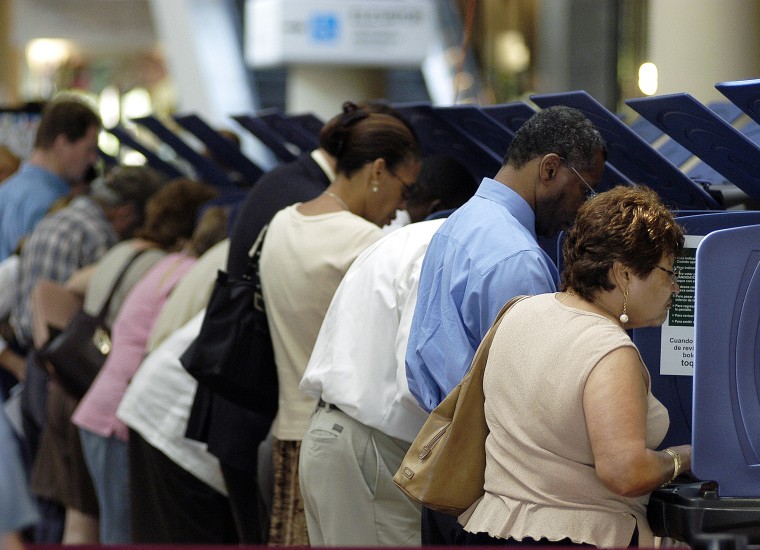A progressive Latino political action committee is endorsing candidates who would be the first Latinas in their seat to get elected—and whose campaigns can motivate voters, especially women, to cast ballots in November.
Latino Victory announced the launch of their “First Latinas” program on Wednesday, which builds on their “Year of the Latina” initiative ahead of the 2018 midterms, when over half of the candidates that Latino Victory endorsed were Latinas.
“When Latinas are on the ballot they galvanize the community to come out and vote. We see that over and over again,” Nathalie Rayes, President and CEO of Latino Victory Fund, told NBC News.“We believe that folks who are on the down ballot will ensure that Vice President Joe Biden becomes president,” said Rayes.
Ahead of November's elections, half of the candidates Latino Victory have endorsed are women who would become the “first” female Hispanics to hold that seat if they win their state and federal races.
Some of the candidates include Candace Valenzuela, who would be the first Afro-Latina elected in Congress; Christina Hale, would be the first Latina elected to Congress from Indiana; Michelle De La Isla, who would be the first Latina in Congress from Kansas and Georgette Gómez, who would be the first LGBTQ Latina in Congress.
In the 2018 election, the number of Latina women in the House of Representatives increased by five.
The new members of Congress included: Alexandria Ocasio-Cortez, D-NY, the youngest woman ever elected to Congress; Debbie Mucarsel-Powell, D-Fla, the first South American elected; Veronica Escobar and Sylvia Garcia, the first Latinas from Texas, and Rep. Xochitl Torres-Small, D-New Mexico.
“That’s pretty powerful,” said Rayes. “2018 saw the blue wave sweep through the country and that wave was led by Latino candidates and Latino voters. So the trend is there and we believe the trend will be there in 2020 like never before."
In 2020 Latinos make up a pivotal voting group and the largest minority group in the electorate, at 32 million. There is concern, however, over how the coronavirus pandemic may impact voter participation. A recent Latino Decisions survey found 73 percent of Latinos said they were very or somewhat concerned about being exposed to coronavirus through in-person voting.
Research shows there is a wide gender gap among Latinos who support Trump. In Arizona, for instance, 15 percent more Latino men than women approved of Trump’s job as president, according to Equis Research.
“Latina women are the glue of our families and our communities, our matriarchs, soccer moms and college-aged kids. Our research shows Latinas are deeply anti-Trump, far more so than Latinos,” Stephanie Valencia, co-founder and president of EquisLabs, said in an opinion piece in May.
Follow NBC Latino on Facebook, Twitter and Instagram.


